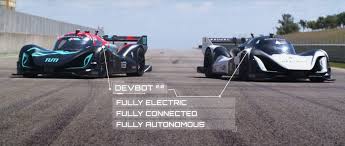
Breaking News
 Mike Rowe appears to be receiving flak for daring to explore the potential dangers of vaccines...
Mike Rowe appears to be receiving flak for daring to explore the potential dangers of vaccines...
 How to Keep Potatoes Fresh for a Year!
How to Keep Potatoes Fresh for a Year!
 A high school student has amazed the global science community with a discovery...
A high school student has amazed the global science community with a discovery...
Top Tech News
 The 6 Best LLM Tools To Run Models Locally
The 6 Best LLM Tools To Run Models Locally
 Testing My First Sodium-Ion Solar Battery
Testing My First Sodium-Ion Solar Battery
 A man once paralyzed from the waist down now stands on his own, not with machines or wires,...
A man once paralyzed from the waist down now stands on his own, not with machines or wires,...
 Review: Thumb-sized thermal camera turns your phone into a smart tool
Review: Thumb-sized thermal camera turns your phone into a smart tool
 Army To Bring Nuclear Microreactors To Its Bases By 2028
Army To Bring Nuclear Microreactors To Its Bases By 2028
 Nissan Says It's On Track For Solid-State Batteries That Double EV Range By 2028
Nissan Says It's On Track For Solid-State Batteries That Double EV Range By 2028
 Carbon based computers that run on iron
Carbon based computers that run on iron
 Russia flies strategic cruise missile propelled by a nuclear engine
Russia flies strategic cruise missile propelled by a nuclear engine
 100% Free AC & Heat from SOLAR! Airspool Mini Split AC from Santan Solar | Unboxing & Install
100% Free AC & Heat from SOLAR! Airspool Mini Split AC from Santan Solar | Unboxing & Install
 Engineers Discovered the Spectacular Secret to Making 17x Stronger Cement
Engineers Discovered the Spectacular Secret to Making 17x Stronger Cement
Humble beginnings for Roborace:

A little piece of history has gone down at the Monteblanco racetrack in Spain, with the world's first fully autonomous car race completed last week. Two teams pitted code and cars against one another, with Team Arrival beating out the Technical University of Munich to take the first ever Roborace win.
The Robocars in question are no joke – 300-kW (402-hp) electric race machines capable of speeds over 320 km/h (199 mph) without drivers on board. Using five LIDARs, two radars, 18 ultrasonic sensors, GNSS satellite positioning, six cameras, two optical speed sensors and Nvidia Drive PX2 processing units, the cars drive themselves according to algorithms programmed by each race team.

 Wall Street wants to go 24/7
Wall Street wants to go 24/7

